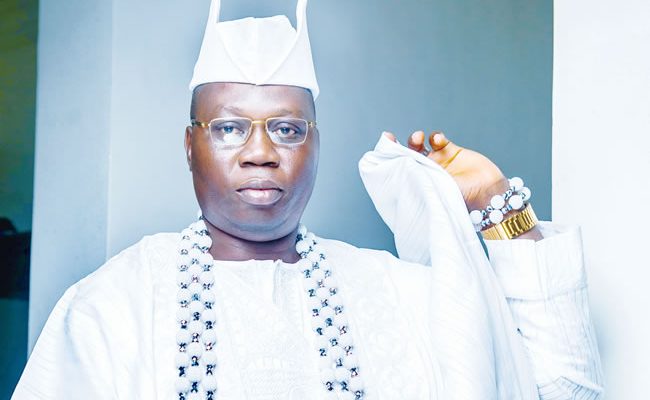Aareonakakanfo of Yorubaland, Iba Gani Adams, has said Nigeria’s survival is rooted in restructuring, insisting that without restructuring, the fate of Nigeria would continue to hang in the balance.
The Yoruba generalissimo gave this position at the 2024 edition of the Elegbara Festival in Shasha, Lagos, saying that there was a need for Nigerians to appreciate the country’s diversity and, therefore, apply such “to the structure of government by also embracing regionalism as the best approach to getting Nigeria out of this political mess.”
This was just as Iba Adams decried the economic situation in the country, saying sadly that the economic indices had shown that the naira was losing its value every day.
According to him, that has also affected every aspect of the country’s socio-economic situation, including the budget proposal, but he quickly said that the new year offered new hope and opportunities for the country to address its structural deficits with a view to achieving its greatest potential as a nation.
“Nigeria’s problem is accumulating with the loss in the value of the naira. We need to appreciate our diversity; we need to also apply this to the structure of government by embracing regionalism as the best approach to getting Nigeria out of this political mess.
“We need to remember the fact that the spirit of our founding fathers will not be happy with the present situation in the country. We must be ready to address the various challenges that are hindering the progress of Nigeria,” Adams said.
“The new year offers new hope and opportunities for us to address the structural deficits of Nigeria, and I think regionalism will help the country in achieving her greatest potential as a nation,” he added.
The Onishasha of Shasha Kingdom, Oba Nasiru Lawal Ogunronbi, in his remark, expressed delight at the event, stressing the need to support the Oodua People’s Congress (OPC) in driving the cultural promotion agenda “to sustain our culture and tradition.”
“We will always support Iba Gani Adams in driving the cultural promotion activities, as that is the only way we can sustain our culture and tradition,” the monarch said.
Also speaking, the Onimeiran of Meiran, Oba Ismaila Adewale Oroja, urged all the traditional rulers to encourage cultural promotion activities, saying such moves would always engender growth and development across the community.
Also speaking, the Oniladaba of Ladaba Kingdom, Oba Nureni Ebudola Odedina Alugbin, restated the need to go back to the root of Yoruba ancestry, noting sadly that many of the problems associated with insecurity, famine, and hunger in Yoruba land were a result of the long years of neglect of the Yoruba ancestors.
“In the good old days, Yoruba land was always a safe territory. There was food in abundance, and nothing threatened our existence. But today, we hardly sleep with our two eyes closed, and that has been the result of the neglect of our culture and tradition,” he said.
The Akinrogun Aareonakakanfo of Yorubaland, Chief Kazeem Hamzat, who is also the Coordinator-General, applauded the support of the Chief Promoter of Olokun Festival Foundation (OFF), Iba Adams, for transforming the cultural terrain, even as he equally expressed appreciation to all the monarchs present.
“I want to appreciate all our royal fathers for finding time to be here. I appreciate all our members for their support and loyalty, and I pray God to grant each and every one of us the opportunity to witness another important moment in the coming years,” the Akinrogun said.
Other traditional rulers that were in attendance at the festival include the Alaguda of Aguda Kingdom, Oba Akeem Agbaosi; the Olu of Ipaja Kingdom, Oba Kolawole Ajani; the Alagbegishe of Agbegishe Kingdom, Oba Joseph Ikudaisi; the Onirokun of Irokun Kingdom, Oba Buari-Ola Balogun; the Oniladaba of Ladaba Kingdom, Oba Nureni Ebudola Odedina Alugbin; and the Onigege of Igege, Osun State, Oba Kazeem Adio Oyediran, among others.
Also in attendance were members of the Aareonakakanfo Chiefs-in-Council, the National Executive Council and the National Coordinating Council of the OPC.
READ MORE FROM: NIGERIAN TRIBUNE








